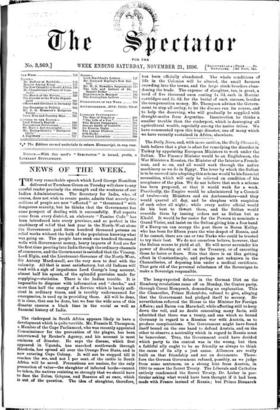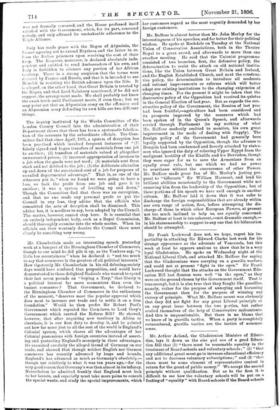The long-expected debate in the German Diet on the Hamburg
revelations came off on Monday, the Centre party, through Count Hompesch, demanding an explanation. This the Chancellor, Prince Hohenlohe, refused to give, alleging that the Government had pledged itself to secrecy. He nevertheless referred the House to the Minister for Foreign Affairs ; and Baron von Marschall, while affecting still to keep down the veil, and no doubt concealing many facts, still admitted that there was a treaty, and one which so bound Germany in regard to a Russian war with Austria, as to produce complications. The Government might have found itself bound on the one hand to defend Austria, and on the other to observe a neutrality which in regard to Russia must be benevolent. True, the Government could have decided which party to the contest was in the wrong, but then a faithful ally ought to be so friendly as always to think the cause of its ally a just cause. Alliances are really built on that friendship and not on documents. There- fore the German Government refused, possibly, as we judge from some sentences, on a strong hint from Austria, in 1890 to renew the Secret Treaty. The Liberals and Catholics entirely condemned the Secret Treaty, Dr. Lieber in par- ticular asking what would have been thought if it had been made with France instead of Russia ; but Prince Bismarck was not formally censured, and the House professed itself satisfied with the Government, which, for its part, censured nobody, and only affirmed its unshakeable adherence to the Triple Alliance.























































 Previous page
Previous page